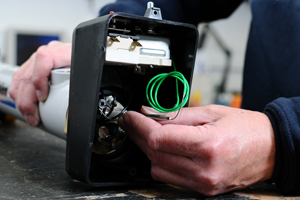


 The pool heater is responsible for maintaining the perfect water temperature within your pool. You should ensure your pool heater is maintained properly to avoid the nasty shock of a cold pool. Follow our simple guide to save costs, prevent damage and ensure the life of your pool heater.
The pool heater is responsible for maintaining the perfect water temperature within your pool. You should ensure your pool heater is maintained properly to avoid the nasty shock of a cold pool. Follow our simple guide to save costs, prevent damage and ensure the life of your pool heater.
General maintenance
The pool heater is one of the most complicated pieces of equipment related to the operation of your swimming pool. Any repairs that need to be done should be carried out by someone qualified to do so. In order to prevent malfunctions, or other issues arising, on all pool heaters you should:
- Regularly inspect the pool heater’s burner intake ports and remove any build up of debris.
- Check the burners for fraying or corrosion. If there are any signs of either, have the burners replaced.
- Regularly clean your filter; heaters require a steady flow of water through the pool filter to operate properly.
- Make sure your pool skimmer is clean and unobstructed.
Own a gas pool heater?
Gas heaters are currently the most common type of pool heater and are powered by natural gas or propane tanks. In order to prevent malfunctions, or other issues arising on your gas pool heater you should: • Regularly wash the tanks down to get rid of debris (such as spider webs) so that it doesn’t clog the burner openings. • Check the gas supply regularly (tanks usually come with a gauge). • Check the pipes for leakages by preparing a liquid dish soap and warm water solution. Spray the solution onto the pipe joints. If any bubbles emerge, the pipes need to be repaired or replaced immediately. Own an electrical pool heater?Electrical pool heaters use heating elements to heat your pool. Over time elements can become covered by minerals which will reduce their efficiency and increase pool heating costs. You should prevent unnecessary costs by:
- Occasionally cleaning the element by safely removing from the heater and scrubbing with a wire brush.
- If the heater doesn’t seem to be working, check your mains power supply and see if the breaker dedicated to your pool heater has tripped.
Clearances
All heaters should be installed on a non-combustible material, such as concrete. It must have a clearance around and above it, including keeping any tree branches at least 4 feet away. You should consult your owner’s manuals for details of the clearances required around the sides of your pool heater. Energy savingTo save on costs, you should purchase an energy efficient pool heater model. The following tips will help you make the most efficient use of your pool heater.
- Install a thermometer in your pool to monitor the most comfortable temperature for your pool.
- Turning the heater to maximum will not affect the time it takes to heat up. Keep it set to the lowest comfortable temperature.
- Turn off your heater and cover your pool with a solar pool blanket for periods when it is not in use.
- Use fencing and shrubbery to shelter your pool from the wind.
Other forms of pool heating, such as heat pumps and solar energy pumps, are growing in popularity. Suppliers and installers of these systems can provide information on the best maintenance routines. To find out more about these alternative systems, including how they work, and their pros and cons, check out our guide here.
Get it checked
The best way to keep your pool heater in top shape is by getting a maintenance check-up at least once a season. The cost of maintaining your pool heater will be minimal compared to the costs of having to replace it before its time!
Remember, if you have a problem with your pool heater consult the owner’s manual immediately – If the problem is still unclear, contact a professional pool engineer for help.
What are your experiences in keeping your pool warm? Have you tried new alternative methods of pool heating? Let us know about your experiences in the comments box below.